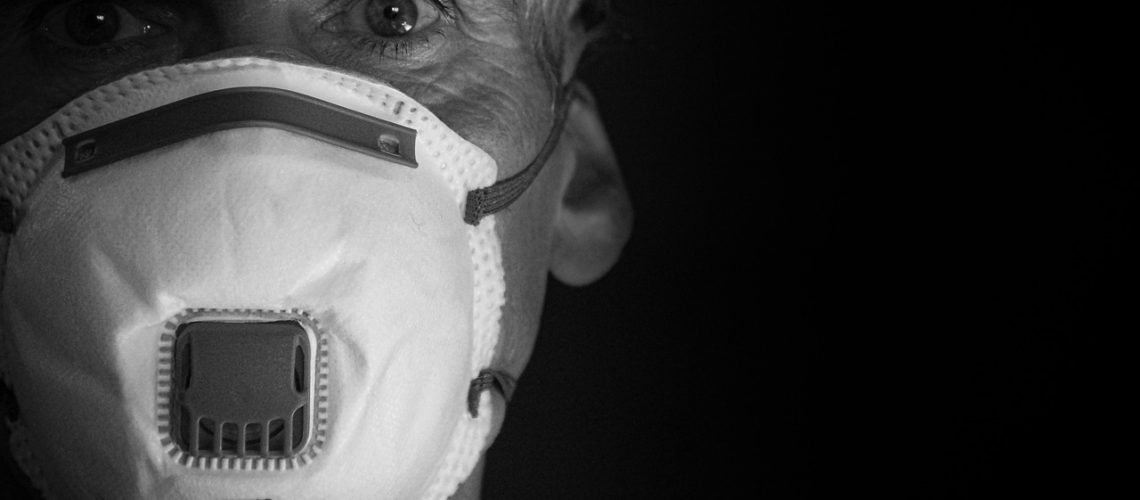I began law school in the fall of 2020, stricken by all of the peculiarities that come along with starting a rigorous course of study during the midst of a pandemic. And as unremarkable of a law student as I am, I somehow stumbled backwards into an incredible opportunity to work under one of the greatest criminal defense legal minds in the state of Georgia. In modern, common parlance we would call my luck as something along the lines of “out-kicking your coverage”.
Now rest assured, this opportunity has not come without its tongue lashings, its late nights, and its all consuming heartbreaks. But nonetheless, despite the difficulties that come alongside the nature of the work, I feel as if I now stand a little taller in character, even if my pride has diminished in stature.
This past week I attended my first trial. The indictment rattled off several different basis for a singular murder, coupled with other severe violent felonies that carried potential sentences ranging from 20 years to life without parole. Given the age of our client we all knew going in that this case was basically all or nothing (win or you essentially get a death sentence). There was absolutely no room for error. Needless to say the pressure was one.
After weeks of brutal prep work the trial fired off with all of the intensity that was to be expected. All bias aside, the case was riddled with uncertainties. In the government’s closing argument the District Attorney said the quiet part out loud: use your common sense; two men entered into a basement in a drunken haze, and one came out alive. But this is where the real turmoil of the situation begins.
Some of the country’s leading experts showed up to testify on behalf of the defendant. They systematically punched holes in the government’s theory of the case covering topics ranging from forensic pathology, alcohol’s effect on memory and action, structural properties of the metal in one of the purported items used in the alleged confrontation, and the volatility that can be displayed alongside a brain disease that afflicted the victim.
To be clear, no one will ever know what actually happened that night due to the excessive amount of alcohol consumed. But, that’s basically the point of this whole piece; no one could ever know. The government’s theory had been scientifically debunked, the defendant has no memories of the night, and the victim is dead.
After powerful closing arguments by both sides the jury was dismissed for deliberation. It was roughly noon on a Friday and our legal team had already begun anticipating having to return the next day to hear the verdict. After all, there were so many unanswered questions, so many pieces of conflicting evidence, so many witnesses with so many differing opinions of the crime scene and what could have possibly transpired. The government couldn’t even provide clear evidence that put the murder weapon in the defendant’s hands.
As we left the courthouse to break for lunch, our team was hopeful; not that we had just secured an easy win for our client, but that we had presented a case that any reasonable juror would have to stop and think long and hard about. We had watched the 12 people who would decide our client’s fate for a week now. We saw them take notes. We saw them make disgusted faces at bloody photos. We watched as they empathized with character witnesses on the stand. We thought we knew those 12 people. We thought that we had possibly even made some frail connection from our seats over at the defense table.
We had just gotten in the car to pick up a quick lunch when the call came in. The jury had reached a verdict. To put a timeline on this, we’re talking about roughly 45 minutes after the court had excused the jury to deliberate. In that time the jury had to be moved to another room, they had to elect a foreperson, and they then had to wait for the evidence to be collected and transported to the room where deliberations would take place.
Doing some back-of-a-napkin math, this process took 25 minutes. This means that the jury actually deliberated, actually sat in the weight and the enormity of the outcome and the future ramifications of their collective decision for roughly 20 minutes. 20 minutes. Win or lose, a man’s life and the fate of his family were decided in 20 minutes. We all rushed back to the courtroom and sat on pins and needles as we waited in anticipation for the jury to return and for the Clerk to read the verdict.
As the Clerk walked the floor to the microphone where she would read the verdict it felt like lifetimes were flashing before me. This case was almost three years old. I had spent hours upon hours of time with the discovery. I had broken bread with this client (who was free on bond). I had hugged his family. I had spent real quality time in his house. He wasn’t just a client, he was a dear friend. A genuinely good person who had found himself in one hell of a tragic situation.
At then the moment that would change us all forever: guilty on all counts.
This moment hit me in one of those “once in a lifetime” profound kind of ways. Despite all of the Law and Order episodes I binged throughout my college career, I think I had always missed the fundamental role of a jury. And I know what you’re thinking; I too shudder at the horror of opening my mail box to find that I have been selected as a potential juror. But if you will indulge me for a moment I will give you-through my newfound enlightenment-the best argument I can currently make for the role of a juror.
As a juror you are handed an enormous responsibility. In fact, I’d go so far as to say you are burdened by the weight of the responsibility, or at least you should be. No matter the eventual outcome you and your 11 counterparts reach, you will have decided the fate of another person. You will have injected some part of yourself directly into the life of the defendant. You are quite literally shaping the future of your community and the people in it. And these jurors now standing before me had decided the fate of a wonderful man, despite all of the questions and controversial evidence, in twenty minutes.
Those of you who know me will know that I’m somewhat of a cynic. Despite an underlying drive I have to want to effectuate change in the world, I often wonder how much one person can really do. But here is where my argument about being a juror comes in.
Someone, anyone, no matter their socioeconomic status, their race, their creed; no matter any list of demographic qualifiers that we could contrive to assign to a group of people; no matter how insignificant these people feel in their day-to-day lives, in this moment they all have an opportunity to create real, lasting change.
And in this moment-in this orchestrated and engineered moment-roughly 250 years in the making; birthed from the ideals of the founding of this country, when 55 men gathered to create a document that would come to inspire and cultivate all of the ideals that we would later strive to achieve, in that very moment, in that very courtroom, these twelve jurors had an opportunity to effectuate a system of justice that the best-of-these have longed for since the founding of this country. And despite that enormous responsibility; that enormous burden; to say absolutely nothing of the weight of designating the future of another sentient life-dare I say an undeserving life-these 12 people decided that the fate of a man, and the best intentions of our country’s greatest minds, should only allow for a gathering of the minds that requires less than twenty minutes of deliberation.
Is this really what we have come to expect from our fellow man? Is this really the level of apathy that we have grown to accept from our community? 20 minutes to decide if a family would be totally together at the next Christmas. 20 minutes to decide if the birth of expected babies would be celebrated by all. 20 minutes to decide who would walk a son down the aisle. 20 minutes to decide the lasting and powerful ripple effects of removing the patriarch from a family. 20 minutes.
Since the decision came down I’ve really had one lasting thought in my mind: is a community that solely relies on the appearance of justice any better than a place that is devoid of justice? Because let’s be honest, is this really justice? I’m not sure when we all decided that apathy was our desired path, but after this past week, my faith in us all looking out for one another is critically injured.










